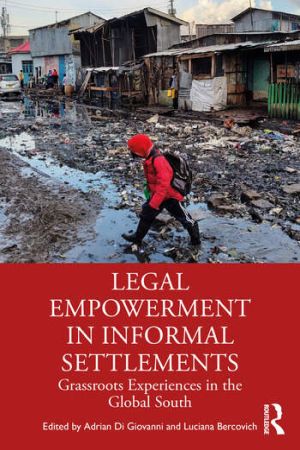We are now closed for the Christmas and New Year period, returning on Monday 5th January 2026. Orders placed during this time will be processed upon our return on 5th January.

This book investigates grassroots, community-led justice strategies – known as legal empowerment – being used to promote the human rights of people living in informal settlements in the Global South.
Residents of informal settlements, also known as slums or favelas, encounter a complex array of human rights violations; from systemic discrimination by public officials, to threats to physical security from forced evictions, or arbitrary arrests, to a lack of access to basic services such as housing, water, sanitation, and education. This book shows how grassroots justice organizations around the world are working with residents to defend their rights and secure more dignified living conditions. Drawing on original empirical research across 10 countries in Africa, Asia, and Latin America, the book demonstrates how legal empowerment can put residents at the centre of holistic approaches to urban development and confront exclusionary and undemocratic systems of governance. The book encompasses practical recommendations and strategies such as rights-based approaches to informality, participation, community mobilization and litigation.
Bridging the gaps between the law on the books and the harsh realities of informality on the ground, this book will be an important read for researchers, practitioners, and policymakers, working in realms of social and economic rights, access to justice and urban poverty and development.